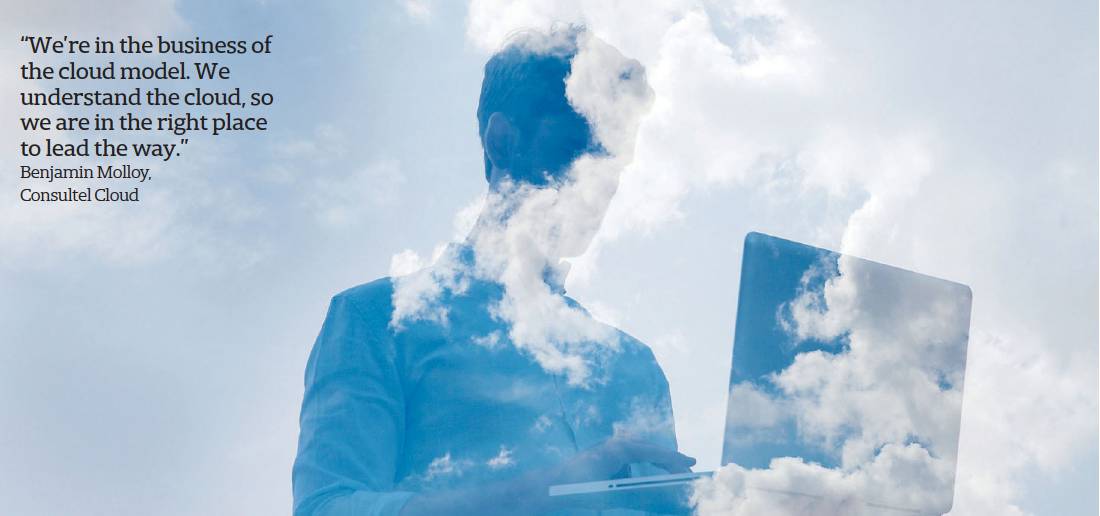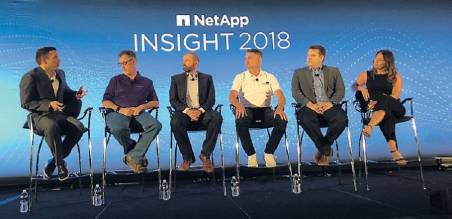Hybrids making best use of the cloud
Our lives are becoming inextricably tied to the cloud. We use the cloud to store favourite snapshots, important documents and crucial work data. Over the past decade, it’s become a part of our lexicon – to the point where it’s even getting the odd pop culture reference (see: the 2014 rom-com Sex Tape).
Yet for many of us, the cloud remains as vague a concept as its namesake. What exactly is it? Does it float hazily somewhere out there, as its title suggests? And what do we need to be mindful of as we continue to work with it more and more?
“The cloud” is an abbreviation of “cloud computing”, a term for using someone else’s computers to do work such as running applications and data storage. It might feel vague and otherworldly because we can access it from anywhere, but in reality, it’s a vast, global network of servers, linked together to work as a single ecosystem. Rather than having to store all your work on your own computer, the cloud allows you to access it anywhere and anytime, and from any device, provided you’re online.
Though cloud computing has been around since the 1960s, it has flourished lately because of how it can provide businesses with increased storage and enable them to run complex applications more smoothly. And as the workforce grows increasingly globalised with individuals working remotely all around the world, the cloud’s flexibility is an undeniable advantage.
But it isn’t without its challenges. Benjamin Molloy, division lead for Melbourne-based IT consultancy Consultel Cloud, notes that, as with all new technology, cloud security can be a concern. And yet, data is more secure in the cloud than elsewhere.
“That’s because one of the prime directives of any cloud provider is keeping data safe,” he explains. “Security is directly built into most service level agreements, and well-defined best practices are standard to cloud implementations.
“Even better, when data is stored off-site via the cloud, employees, vendors and visitors are physically separated from other mission-critical data. This makes it less likely for hackers to inadvertently access and leverage this information.”
Consultel Cloud specialises in hybrid cloud solutions – meaning, basically, a mixed cloud computing environment that makes use of onsite infrastructure, private cloud services and public clouds, such as Azure, Google Cloud or AWS. The benefit of hybrid solutions is that they allow companies to capitalise on their existing inhouse infrastructure, but also allows them to optimise productivity and flexibility.
Molloy describes hybrid set-ups as “the way of the future”, but says companies unaware of the advantages can struggle with navigating data storage and experience bill shock.
“A lot of companies will stick to one provider without really understanding why,” he says. “It’s just because they think, say, ‘We like Amazon, so that’s who we’re going to stick with’. For companies to grow, they need to get out of their comfort zone and embrace the new technologies to adopt hybrid cloud by creating the synergy between private, public and on-premise infrastructure.
“But people don’t understand the workloads and prices, or that certain providers are better for some services than others. They start moving things across and quickly work out that they’re not getting the best performance; in fact, it’s much worse and they end up paying a lot more for it.”
Moreover, if clients decide to change to another, more suitable provider, they can be hit with egress charges for moving their data out. Molloy says Consultel Cloud helps customers avoid these problems by managing the entire environment and charging a single fixed price. They’ve partnered with leading storage and cloud data services providers NetApp and Equinix to provide solutions for customers around the globe and work with businesses in all manner of sizes and industries.
Molloy’s number one tip for companies working with the cloud is “get proper management and proper advice”.
“For our customers, it’s not their core business,” he points out. “We’re in the business of the cloud model. We understand the cloud, so we are in the right place to lead the way.”
A case in point is Bondi Blue Vodka, an Australian-owned company that moved completely to the cloud with Consultel Cloud and implemented a remote access platform. Director and founder Jesse Rugolo says: “The key value is time management. I get more time back to focus on more important things like running the business.”
Advertising agency Adcorp Australia also engaged Consultel Cloud for back-up and recovery. In the words of an Adcorp spokesperson, this was “a big relief”.
“[We were] able to offload one of the key headaches [we] had.”

